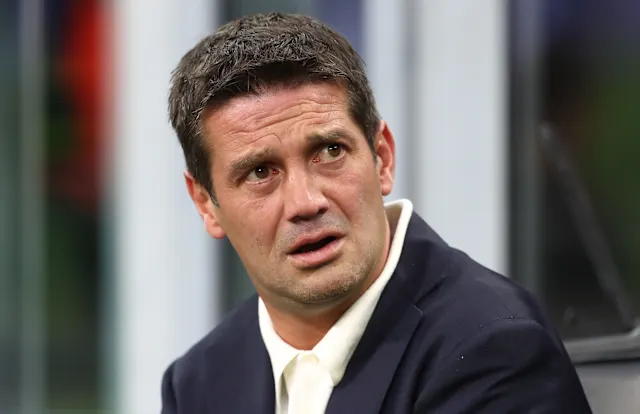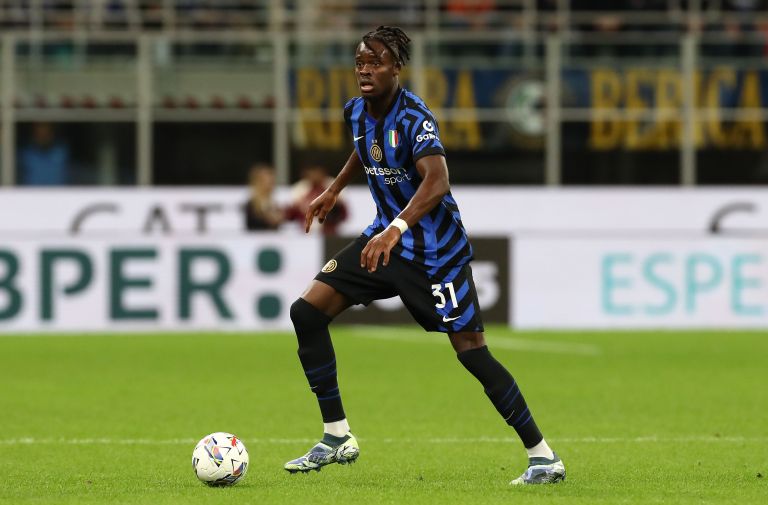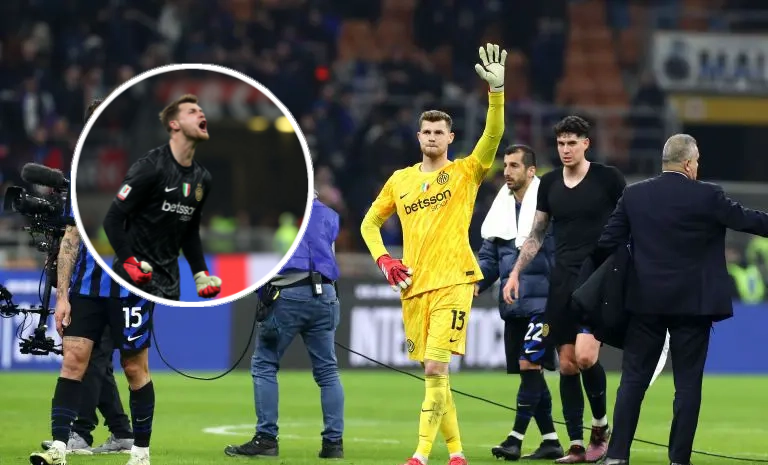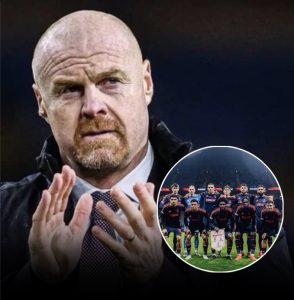NICO PAZ VUOLE INSERIRE UNA CLAUSOLA INTELLIGENTE NEL CONTRATTO DELL’INTER PRIMA DI FIRMARLO, HA TUTTE LE CARTE IN MANO
In the high-stakes world of football transfers, negotiations are often more intricate than they appear on the surface. For clubs, securing talented young players is a matter of strategic foresight. For players, it’s about maximizing potential while ensuring long-term career security. This dynamic is now playing out in dramatic fashion as Nico Paz, the highly-rated Real Madrid youngster, edges closer to a move to Inter Milan—but not without attempting to include a clause that could redefine the power balance in modern player contracts.
The 19-year-old Argentine, long seen as one of the brightest talents in Real Madrid’s youth academy, is reportedly in advanced negotiations with Inter Milan. The move, which initially seemed like a straightforward transfer for a player seeking more first-team football, has taken an unexpected twist. According to multiple reports, Nico Paz is demanding the insertion of a smart clause into his prospective Inter contract—one that would give him control over his future trajectory in a way rarely seen in Italian football.
A Rising Star With Unfinished Business
Nico Paz is no ordinary youth prospect. Born in Spain but representing Argentina at youth level, the attacking midfielder possesses a rare combination of technical finesse, tactical awareness, and scoring instinct. He made headlines in the UEFA Youth League and has been slowly integrated into Real Madrid’s senior setup under Carlo Ancelotti. Yet, despite showing promise, he has found opportunities limited due to the club’s stacked midfield, including names like Jude Bellingham, Federico Valverde, and Eduardo Camavinga.
Recognizing the need for regular first-team football, Paz has entertained offers from other top European clubs. Among them, Inter Milan has emerged as a frontrunner, presenting a compelling sporting project centered on youth development and Serie A competitiveness. But Paz, despite his age, is proving to be a shrewd negotiator.
The Clause That’s Stirring Up Italian Football
What makes this potential transfer extraordinary is Paz’s insistence on including a release clause with a twist. While release clauses are common in Spanish football—La Liga regulations actually mandate them—they are far rarer in Italy, where clubs often seek greater control over contract terms.
Paz is reportedly pushing for a clause that would allow him to leave Inter Milan after two seasons for a fixed fee, regardless of his remaining contract length—but only to a select group of elite European clubs. This would effectively mean that if Real Madrid, Manchester City, or Bayern Munich were to come calling with the agreed-upon amount, Inter would be obligated to let him go.
Moreover, it’s not just the existence of a buyout clause that’s causing waves—it’s the conditional structure and the player-centric leverage. Sources suggest Paz and his advisors are pushing for the clause to be performance-based as well. If he reaches certain thresholds—like a minimum number of appearances, goals, or assists—it would automatically trigger a reassessment of his contract, possibly increasing his wages or adjusting the release fee.
Inter Milan’s Dilemma: Talent vs. Control
Inter Milan’s sporting directors, particularly Piero Ausilio and Dario Baccin, now face a critical decision. The club is in need of fresh attacking blood, especially with the departures of Alexis Sánchez and the uncertain future of players like Marko Arnautović. Paz represents a generational talent that could reinvigorate the Nerazzurri midfield and add youthful dynamism to Simone Inzaghi’s system.
But the proposed clause represents a risk to Inter’s traditional transfer model. Inter typically signs young talent with the intent to either develop them into long-term assets or sell them on their own terms, often to the highest bidder. Ceding this level of contractual control to a teenager, no matter how talented, could set a precedent that challenges the club’s negotiation strategies with future signings.
There are also concerns internally that such a clause would reduce Inter’s bargaining power in two years’ time, especially if Paz becomes a breakout star. The fixed fee, no matter how substantial, may pale in comparison to his market value if he explodes in Serie A.
Nico Paz Has All the Cards
Yet, despite Inter’s hesitation, the balance of power in this negotiation seems to rest firmly with Nico Paz. And that’s because of one thing: demand.
Paz isn’t desperate to leave Madrid. In fact, sources close to the player suggest he is more than willing to remain at the Bernabéu if the right move doesn’t materialize. Real Madrid, for their part, have not closed the door on a potential future for Paz, with club president Florentino Pérez reportedly including a buy-back clause if the Inter deal goes through.
Moreover, Paz has been contacted by other clubs, including Bundesliga side RB Leipzig and Premier League outfit Brighton, both known for developing young talent and providing fast tracks to first-team football. This gives him the leverage to dictate terms—especially to clubs like Inter, who are eager to outmaneuver their rivals for his signature.
The Influence of Agents and Legal Advisors
Behind the scenes, Paz’s camp is being advised by a top-tier agency known for negotiating player-friendly contracts. They’re not just looking for immediate playing time; they’re thinking three, four, even five years ahead. The structure they want to impose is designed to ensure Paz can pivot to a bigger club when the time is right—without being priced out by a greedy club or stuck due to inflated market values.
This trend is not isolated. More and more young players, especially from Spain and South America, are leveraging their early potential to secure long-term mobility. Jude Bellingham had such clauses when he moved from Birmingham to Dortmund, and then on to Madrid. Even players like Jadon Sancho had exit strategies embedded in their contracts early on.
Inter’s Next Steps
Inter’s board now finds itself at a crossroads. Do they bend and allow the clause, setting a precedent that could erode their control over future deals? Or do they walk away from a deal that could bring in one of the most exciting young talents in Europe?
It’s a gamble either way. If they refuse and Paz becomes a global star elsewhere, it could haunt them. If they accept and he leaves in two seasons for less than market value, it will raise questions about the club’s ability to protect its assets.
Insiders suggest that Inter may look for a compromise—perhaps inserting a clause that allows the club to match any bid or receive a higher percentage of a future sale, in exchange for allowing the fixed fee to exist. Such mechanisms have been used before in Italian football, albeit rarely.
Conclusion: A Transfer That Could Reshape Norms
Nico Paz’s proposed transfer to Inter Milan isn’t just a football story—it’s a litmus test for where player power is heading in the 2020s. The outcome of this negotiation could have far-reaching consequences for how young talents approach contracts, and how clubs adapt to an increasingly player-driven market.
As of now, the ball is in Inter’s court. But if Paz holds firm—and all signs suggest he will—they may have no choice but to accept the smart clause, even if it means sacrificing some traditional control.








Post Comment